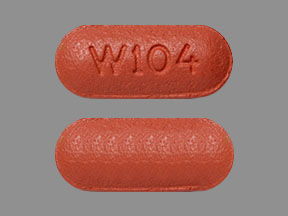Neratinib Disease Interactions
There is 1 disease interaction with neratinib.
Neratinib (applies to neratinib) liver dysfunction
Major Potential Hazard, Moderate plausibility. Applicable conditions: Liver Disease
Neratinib is mainly metabolized in the liver and its use has been associated with hepatotoxicity characterized by increased liver enzymes. Patients with severe, preexisting hepatic impairment (Child Pugh Class C) experienced a reduction in neratinib clearance and an increase in C max and AUC. It is recommended to reduce the starting dose of neratinib to 80 mg in patients with severe hepatic impairment (Child Pugh C). Measure total bilirubin, AST, ALT, and alkaline phosphatase prior to starting treatment and monthly for the first 3 months of treatment, then every 3 months while on treatment and as clinically indicated. No dose modifications are recommended for patients with mild to moderate hepatic impairment (Child Pugh A or B).
References
- (2017) "Product Information. Nerlynx (neratinib)." Puma Biotechnology, Inc.
Neratinib drug interactions
There are 183 drug interactions with neratinib.
Neratinib alcohol/food interactions
There is 1 alcohol/food interaction with neratinib.
More about neratinib
- neratinib consumer information
- Check interactions
- Compare alternatives
- Reviews (26)
- Side effects
- Dosage information
- During pregnancy
- Drug class: EGFR inhibitors
- En español
Related treatment guides
Drug Interaction Classification
| Highly clinically significant. Avoid combinations; the risk of the interaction outweighs the benefit. | |
| Moderately clinically significant. Usually avoid combinations; use it only under special circumstances. | |
| Minimally clinically significant. Minimize risk; assess risk and consider an alternative drug, take steps to circumvent the interaction risk and/or institute a monitoring plan. | |
| No interaction information available. |
Further information
Always consult your healthcare provider to ensure the information displayed on this page applies to your personal circumstances.


